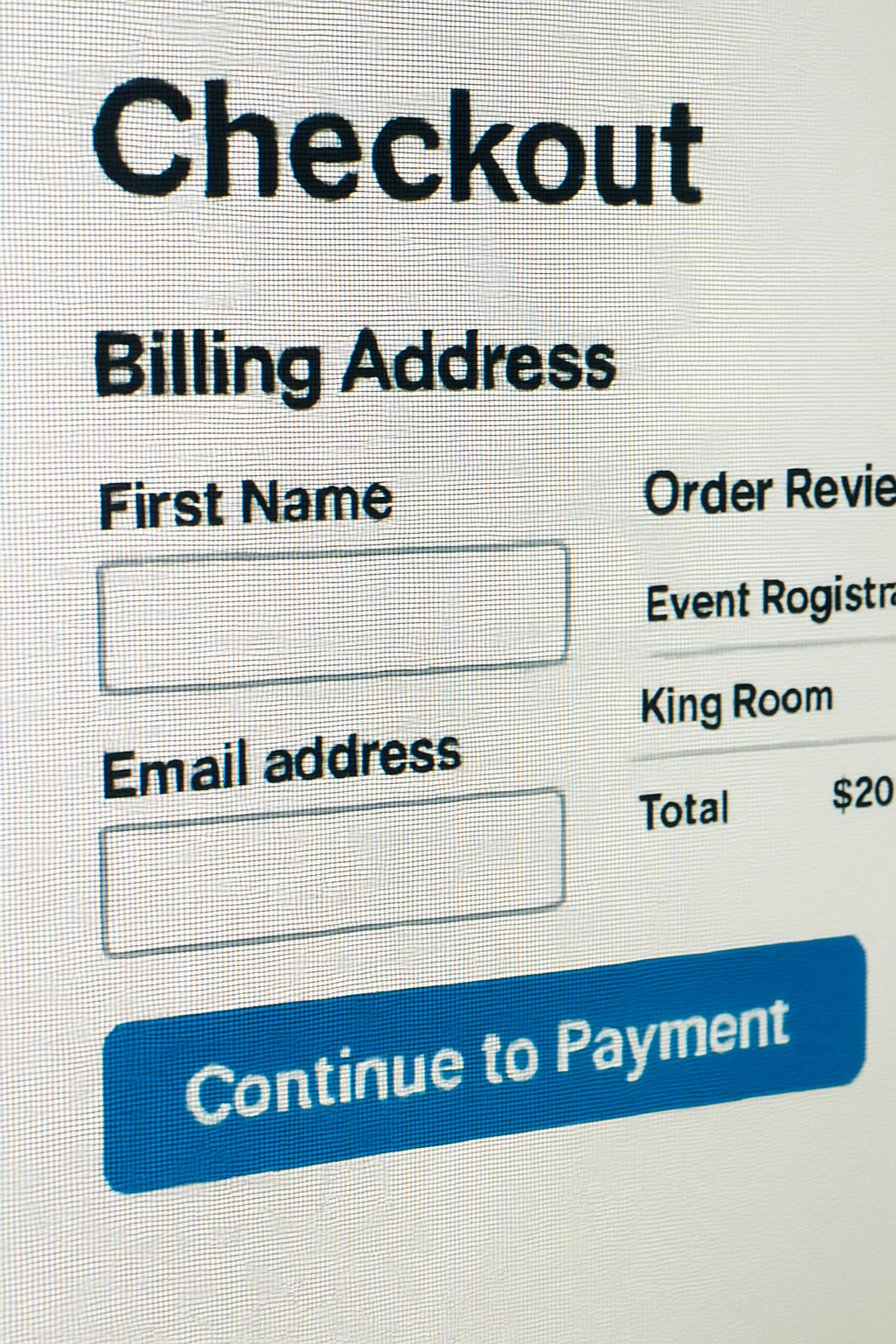Problem
The organization’s existing event website faced several critical challenges that limited both user engagement and operational efficiency. The site was not mobile friendly, which made it difficult for attendees to navigate or complete registrations from phones and tablets the primary devices used by most users. Accessibility standards were also not addressed, creating barriers for individuals with disabilities and leaving the site out of compliance with modern expectations for inclusivity.
Beyond usability issues, the checkout process was cumbersome and not designed to support the unique business rules of event management. Registrations and hotel bookings were disconnected, leading to confusion for attendees and manual interventions by staff. For example, there was no built-in validation to ensure that a user had registered for the event before booking a room, which resulted in errors and additional administrative work. The system also lacked the flexibility to handle up-sell opportunities such as adding extra nights, VIP packages, or other optional enhancements. These gaps not only created frustration for attendees but also left revenue on the table for the organizers.
Solution(In-Process)
Work is underway to rebuild the website with a focus on three priorities: mobile responsiveness, accessibility, and a streamlined checkout process tailored to event-specific needs. The design is being updated to provide a clean, mobile-first layout that adapts to screens of all sizes, ensuring attendees can complete registrations and purchases from any device. Accessibility standards are being built in from the ground up, with proper markup, labels, and focus states to ensure compatibility with assistive technologies.
A significant part of the project involves re-engineering the checkout workflow. A custom system of fields will capture attendee registration details directly during checkout, reducing the need for manual follow-up. Advanced business logic is being developed to enforce proper order flow, such as requiring a valid event registration before booking a hotel room. This will prevent incomplete or invalid orders and reduce the administrative burden on staff.
Up-sell opportunities are also being incorporated into the new design. Attendees will be able to add extra nights, purchase VIP upgrades, or select other add-on packages seamlessly during checkout. These options will be positioned strategically in the process to maximize visibility while keeping the user experience smooth and intuitive.
Impact(Expected)
Once completed, the new system is expected to deliver major improvements for both attendees and organizers. Attendees will benefit from a mobile-friendly, accessible registration process that removes barriers and provides a clear, intuitive checkout flow. Organizers will see reduced errors and manual corrections, thanks to built-in rules and structured workflows.
The introduction of up-sell opportunities will open up new revenue streams, while the simplified experience will build greater trust and confidence in the platform. Ultimately, the project is on track to transform a fragmented, outdated registration process into a modern, professional-grade system designed around the real needs of both users and organizers.
